So Ends Our Night (1941)
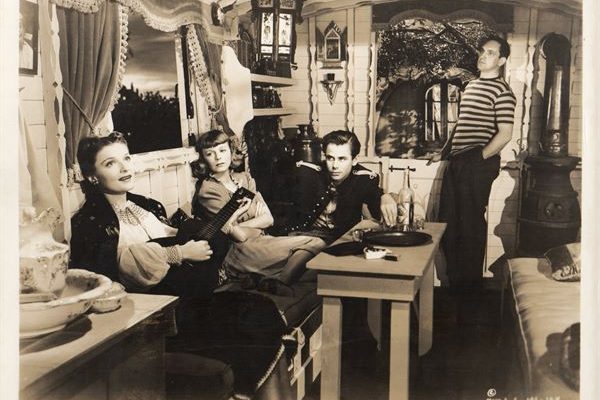
Toronto Film Society presented So Ends Our Night (1941) on Sunday, November 26, 1989 in a double bill with Chances as part of the Season 42 Sunday Afternoon Film Buffs Series “A”, Programme 3.
Production Company: United Artists. Producers: David Loew, Albert Lewin. Director: John Cromwell. Screenplay: Talbot Jennings, from the novel Flotsam by Eric Maria Remarque. Photography: William Daniels. Editor: William Reynolds. Music: Louis Gruenberg.
Cast: Fredric March (Josef Steiner), Margaret Sullavan (Ruth Holland), Frances Dee (Marie Steiner), Glenn Ford (Ludwig Kern), Anna Sten (Lilo), Eric von Stroheim (Brenner), Allan Brett (Merrill), Joseph Cawthorn (Potzloch), Leonid Kinskey (The Chicken), Alexander Granach (The Pole), Roman Bohnen (Mr. Kern), Sig Rumann (Ammers), William Stack (Professor Meyer), Lionel Royce (Barnekrogg), Ernst Deutsch (Dr. Behr), Spencer Charters (Swiss Policeman), Hans Schumm (Kobel), Walter Stahl (Police Captain).
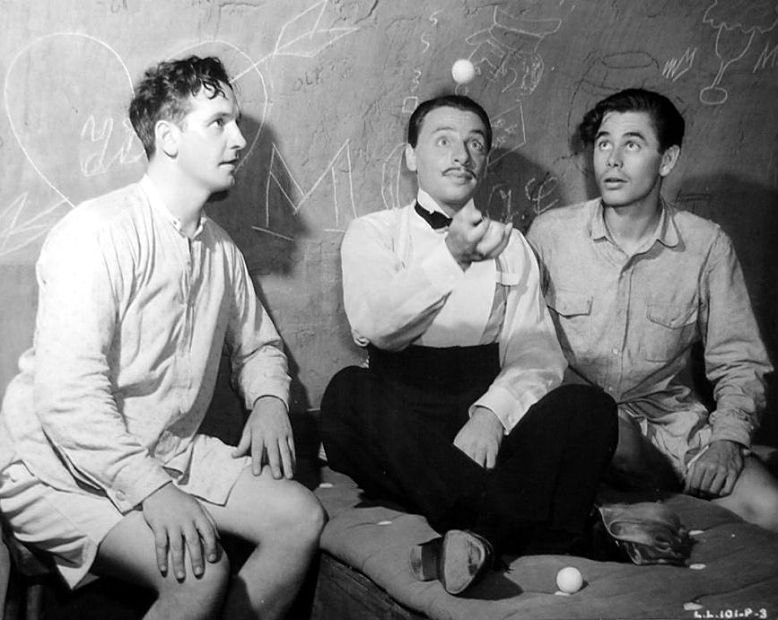
“So End Our Night was a worthy, serious effort at significant and meaningful film-making, produced conscientiously by David L. Loew and Albert Lewin and directed painstakingly by John Cromwell. Based on the novel Flotsam, by Erich Maria Remarque, the film undoubtedly had its heart in the right place, reflecting the sincere commitment of all involved in it. But critical opinion tended to be divided. The movement of the story was on the sluggish, episodic side; in fact the story itself amounted to very little. March, Margaret Sullavan, and especially young Glenn Ford, then at the beginning of his career, were praised lavishly for their sensitive, penetrating characterizations, but a film that should have possessed a tragic universality seemed ponderous and at times downright dull.
“The main fault lay in the story, which Talbot Jennings could salvage from the novel only to a point. Remarque’s power lay in his characterizations and his shrewd establishment of mood, well captured by him on paper but difficult to transpose successfully to cinema. What story there was dealt with a group of refugees from Nazi Germany at the beginning of World War II who are driven from country to country due to the denial of passports by a Hitler regime that persecutes, hounds and pursues them.
“Fredric March plays an upright, conscientious German who cannot accept the Nazi regime. Denied a passport, he joins the other displaced pilgrims in wandering the face of Europe, meeting assorted forms of persecution wherever he goes. He meets up with a lonely, disoriented young nineteen-year-old refugee (Ford) and they strike up a friendship. Ford falls in love with Margaret Sullavan and their touching romance, played-out with consumate simplicity and sincerity by both, is responsible for some of the finest sequences in the film.
“March has left his wife, Frances Dee, back in Germany; when he hears she is ill, he returns to her, sacrificing his freedom, and presumably his life, in the process. Ford and Sullavan, on the other hand, find happiness together; they along with the other refugees, or some of them anyway, will manage, it is implied, to fight their way through to peace and happiness somewhere, somehow.
“Despite attempts to leaven the heavy-going proceedings with humor, the net result was drab, even pedestrian, the total relieved only by the exceptionally fine acting, with March in the vanguard. The film also provided a boost to the career of Glenn Ford, then twenty-four, who was to become one of the biggest stars in films within five years.”
The Films of Fredric March by Lawrence J. Quirk, Citadel, 1971
Notes compiled by Jaan Salk

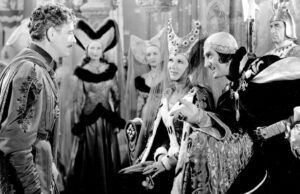
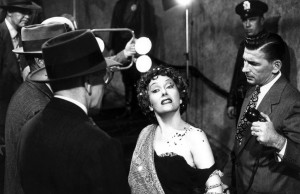
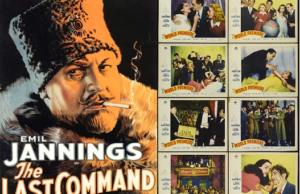






Leave a Reply